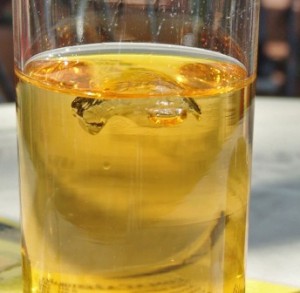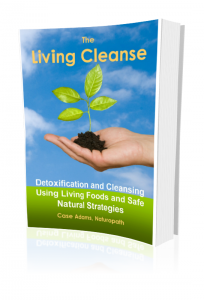Flame Retardant Chemical BVO Found in Popular Soft Drinks
In 2012, a consumer petition demanded PepsiCo stop utilizing an ingredient in one of its most popular sports drinks that has been linked with fertility issues, nervous disorders and hormonal changes. But many other soft drinks contain this chemical. The ingredient is brominated vegetable oil.
In this article
Brominated vegetable oil found in many soft drinks
This ingredient is found in some 10% of soft drinks sold in the U.S. These include Mountain Dew, Coca-Cola, Fanta, Powerade, Fresca, Squirt, and Sunkist Peach and Pineapple Sodas and others.
Brominated vegetable oil contains the chemical bromine, also found in many flame retardants that are part of houses, furniture and even some toys. The chemical is banned in the European Union and Japan. But here in the U.S., soft drink makers blend it with vegetable oil and add it to sodas as brominated vegetable oil. The bromine allows the beverage’s artificial citrus flavoring agent to bond with the sweeteners in the soda, rendering an artificial citrusy flavor.
What’s wrong with BVO?
Studies have shown that bromines build up within fat tissues of both humans and animals. A 2004 study by the Environmental Working Group tested 20 mothers and found that every mother had “unexpectedly high” levels of bromine from flame retardant chemicals in their breast milk.
Brominated flame retardants have also been building up among various mammals and other sealife around the world. A 2010 study from the Woods Hole Oceanographic Institute found that brominated flame retardants (BFRs) and polybrominated diphenyl ethers (PBDEs) have been bioaccumulating in seals and right whales and other marine life off the Massachusetts coast.
Another study from Environment Canada found that brominated toxins are building up in ringed seals and polar bears.
Meanwhile, soft drink manufacturers and their representatives claim that BVO is safe. “This is a safe ingredient approved by the FDA, which is used in some citrus-based beverages,” stated a spokesperson from the American Beverage Association.
Research has linked brominated compounds with nervous disorders, fertility issues and hormonal disruption including thyroid problems.
Which sodas still contain BVO?
The petition to PepsiCo Beverages was filed by Sarah Kavanagh, a teenager who found the use of BVO in her Gatorade soda offensive. “BVO is banned other places in the world, so these companies already have a replacement for it,” Ms. Kavanagh told the New York Times.
The petition received 205,537 signatures, and PepsiCo responded by removing the ingredient from Gatorade. Another petition forced Coca-Cola to remove BVO from Powerade. In 2014, PepsiCo announced it would remove BVO from all their drinks. But as of 2018, AMP Energy, Mountain Dew, and Sun Drop still contain BVO, along with many other citrus and orange flavored sodas on the market.
The solution is to give up on sugary sodas completely. Sodas are also linked to diabetes and heart disease.
REFERENCES:
Montie EW, Letcher RJ, Reddy CM, Moore MJ, Rubinstein B, Hahn ME. Brominated flame retardants and organochlorine contaminants in winter flounder, harp and hooded seals, and North Atlantic right whales from the Northwest Atlantic Ocean. Mar Pollut Bull. 2010 Aug;60(8):1160-9.
Letcher RJ, Gebbink WA, Sonne C, Born EW, McKinney MA, Dietz R. Bioaccumulation and biotransformation of brominated and chlorinated contaminants and their metabolites in ringed seals (Pusa hispida) and polar bears (Ursus maritimus) from East Greenland. Environ Int. 2009 Nov;35(8):1118-24.
Lunder, S. and Sharp, R. et al. Study Finds Record High Levels of Toxic Fire Retardants in Breast Milk from American Mothers. Environmental Working Group, 2003.
Strom S. Drink Ingredient Gets a Look. NY Times online. 2012 Dec 12.
















